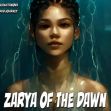Three of the world’s largest music companies—Universal Music Group, Sony Music Group, and Warner Music Group—filed lawsuits on Monday against two generative AI startups, Suno and Udio, accusing them of infringing on artists’ and labels’ copyrights to create their AI-driven music composition tools.
Udio, the AI company behind the viral Drake diss track, "BBL Drizzy," gained notoriety last month during a feud between Kendrick Lamar and Drake, showcasing Udio's ability to create music that captures public interest. Founded by former Google DeepMind researchers, Udio aims to democratize music creation, making it accessible to everyone. In April, Udio secured $10 million in funding to advance its technology. Suno, operates a platform that allows users to create music with minimal input, relying heavily on OpenAI’s ChatGPT for generating lyrics and titles.
The lawsuits, filed by the Recording Industry Association of America (RIAA), allege that Suno and Udio illegally used copyrighted works scraped from the internet to train their AI models. These models, the plaintiffs claim, can generate sound-a-likes of famous recordings such as The Temptations’ “My Girl,” Green Day’s “American Idiot,” and Mariah Carey’s “All I Want for Christmas,” as well as works by Chuck Berry and James Brown. The suits further allege that the services have produced vocals indistinguishable from those of famous artists like Lin-Manuel Miranda, Bruce Springsteen, Michael Jackson, and ABBA.
RIAA CEO Mitch Glazier emphasized the necessity of these lawsuits to uphold fundamental copyright protections amid the rapid advancement of AI technology in a recent press release. He stated, “Unlicensed services like Suno and Udio that claim it’s ‘fair’ to copy an artist’s life’s work and exploit it for their own profit without consent or pay set back the promise of genuinely innovative AI for us all,” as reported by Wired.
Suno’s Chief Executive Mikey Shulman defended the company’s technology, stating that it is designed to generate entirely new outputs rather than memorize and reproduce pre-existing content. Shulman also emphasized that Suno’s platform does not allow users to reference specific artists in their prompts.
“Our technology is transformative; it is designed to generate completely new outputs, not to memorize and regurgitate pre-existing content,” Shulman said in a written statement.
However, a spokeswoman for the RIAA challenged this assertion, stating, “Suno continues to dodge the basic question: What sound recordings have they illegally copied?”
Representatives for Udio have not responded to requests for comment on the lawsuits.
The lawsuits seek several remedies, including a court declaration that Suno and Udio infringed on copyrighted sound recordings, injunctions to prevent the companies from using the material in the future, and damages potentially reaching $150,000 per infringed work.
These legal actions are the latest in a series of challenges related to training AI models on copyrighted content. They highlight the growing tension between creative industries and technology companies as emerging technologies transform how consumers interact with art.
The case against Suno, which developed Suno AI, was filed in the U.S. District Court for the District of Massachusetts. The case against Uncharted Labs, the developer of Udio AI, was filed in the U.S. District Court for the Southern District of New York.






